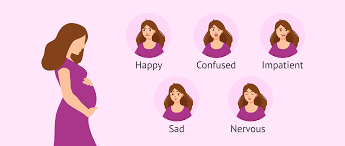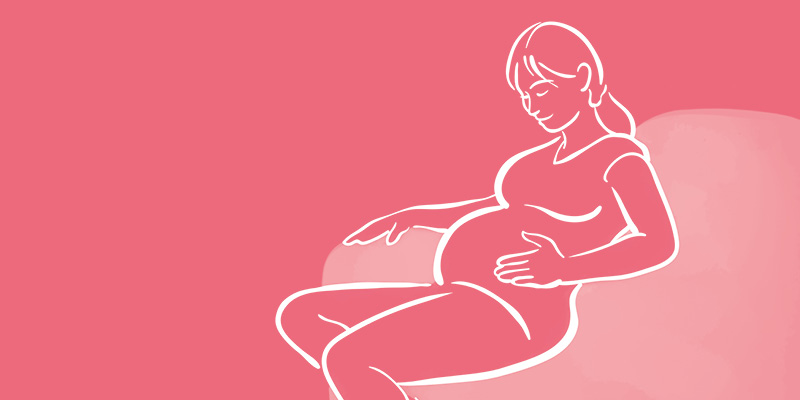Best used during: Weeks 10–28 (when emotional shifts become more noticeable)
A gentle guide for understanding your feelings during pregnancy — with compassion, not fear.
Pregnancy brings a full spectrum of emotions — excitement, worry, tenderness, irritability, and everything in between. These emotional shifts are often influenced by hormones, physical changes, and the sheer magnitude of preparing for a new life. Feeling sensitive is not a sign of weakness. It’s a sign that your body and heart are doing incredibly important work.
What “Normal” Pregnancy Emotions Often Look Like
Emotional ups and downs are extremely common. You might:
- Feel more sensitive or easily overwhelmed
- Have moments of sudden sadness or tears
- Worry about the future or about becoming a parent
- Experience mood swings — especially during the first and third trimesters
- Feel tired and crave more quiet time or emotional space
These emotional waves usually come and go. They shift with rest, support, or simply with time.
When Emotional Changes Might Be Something More
Prenatal depression is more common than many people realize — and it is not your fault. Hormones, stress, past mental health challenges, or even external pressures can play a role.
It may be a sign of prenatal depression if your feelings:
- Last for more than two weeks
- Feel heavy, constant, or overwhelming
- Interfere with work, daily tasks, or relationships
- Make you lose interest in activities that used to bring joy
- Cause changes in appetite or sleep patterns
- Make it hard to focus or feel hopeful
Persistent sadness, fear, or emotional numbness deserve attention — not self-blame.
You Are Not “Too Emotional” — You Are Human
Many pregnant women feel guilty for struggling emotionally, but your feelings are valid. Pregnancy can amplify everything — love, fear, joy, stress — because you’re preparing for one of the biggest transitions of your life.
Seeking support is a sign of strength, not failure. You don’t have to “stay strong” or carry everything alone.
When to Reach Out for Help
If something feels “off,” trust your intuition. Speaking to a healthcare provider can bring clarity and comfort. They may recommend:
- A mental health screening
- Counseling or therapy
- Support groups for pregnant women
- Simple lifestyle adjustments to reduce stress
Getting help early can make the rest of your pregnancy feel safer, calmer, and more supported.
Gentle Coping Practices You Can Try
Small changes can support your emotional balance:
- Practice slow breathing or grounding exercises
- Create a daily moment of stillness or mindfulness
- Reach out to someone you trust and talk honestly
- Spend time outdoors or in sunlight
- Choose rest without guilt — your body is working hard
You Deserve Emotional Safety During Pregnancy
Pregnancy is not just physical — it’s deeply emotional. If your feelings fluctuate, it doesn’t mean you’re failing. And if your emotions feel heavier than usual, you deserve support.
You are not alone. You are not dramatic. You are not “too much.” You are a person growing a life — and you deserve care, compassion, and understanding.




